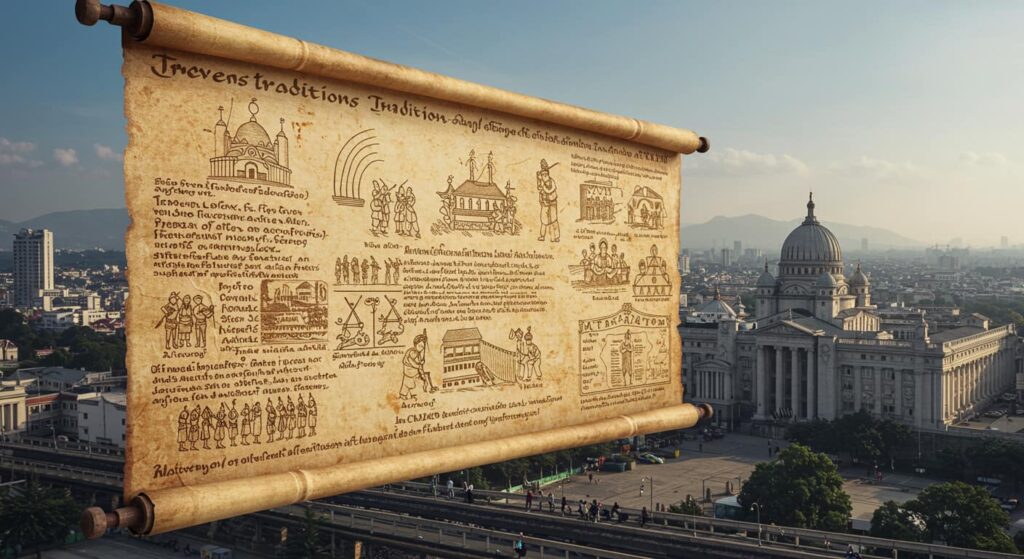Tradition plays a powerful role in shaping a culture. It acts as a link between the past and the present, preserving the values, customs, beliefs, and behaviors that define a group of people. Traditions are passed down from one generation to the next through festivals, rituals, language, clothing, food, music, and family practices. They help maintain cultural identity, foster social bonds, and provide a sense of belonging. Without tradition, cultures may lose their uniqueness and shared meaning. Let’s explore how tradition influences culture and why it remains essential in modern societies.
Preserves Cultural Identity
Traditions protect and carry forward the unique identity of a culture. Whether it’s Diwali in India, Thanksgiving in the U.S., or Lunar New Year in East Asia, traditional events remind people of their roots. They help communities celebrate their shared history and maintain a distinct cultural character in a fast-changing world.
Builds Social Unity and Belonging
Shared traditions bring people together. Family gatherings, religious ceremonies, and community festivals allow individuals to connect, strengthen relationships, and build unity. These collective experiences create a strong sense of belonging and help people feel part of something larger than themselves.
Passes Down Values and Beliefs
Traditions are a vehicle for transmitting core values, morals, and lessons from one generation to another. For example, stories, songs, and rituals often carry messages about respect, courage, kindness, or faith. They teach young people how to live, behave, and understand the world around them.
Provides Continuity and Stability
In a rapidly changing world, tradition offers comfort and stability. It connects people to the past and offers a sense of order and predictability. Even during difficult times, familiar traditions—like lighting a candle, saying a prayer, or wearing traditional attire—can offer emotional support and grounding.
Inspires Cultural Practices and Art
Tradition influences clothing styles, architectural designs, dance forms, storytelling, and culinary practices. Cultural expressions rooted in tradition—like Japanese tea ceremonies, African tribal dances, or Islamic calligraphy—continue to inspire modern art, fashion, and design while keeping heritage alive.
Shapes Social Norms and Behavior
Traditions often define what is considered polite, respectful, or appropriate in a society. For example, greeting elders, celebrating marriage rituals, or observing seasonal festivals all shape how individuals behave in social situations. These traditions set the foundation for accepted community behavior.
Influences Religion and Spiritual Life
Tradition plays a central role in religious practices. Sacred texts, prayers, fasting, festivals, and pilgrimages are rooted in tradition and give people spiritual meaning and guidance. These rituals help people connect with their faith and form a strong religious community.
Encourages Cultural Diversity
Every culture has its own set of unique traditions. This diversity enriches the world and allows people to learn from one another. Celebrating cultural traditions—both our own and others’—promotes understanding, respect, and appreciation of global diversity.
Evolves with Time
While traditions are rooted in the past, they can also evolve. As societies change, traditions may adapt to fit new values or technologies. For example, traditional weddings today may include digital invitations or modern music. These changes help keep traditions relevant while preserving their essence.
Challenges and Criticisms
Some traditions may conflict with modern values, especially those that involve inequality, exclusion, or harm. It’s important for cultures to reflect on their traditions, keep what uplifts society, and let go of practices that no longer serve the greater good.
Conclusion
Tradition is the heartbeat of culture. It shapes how people live, think, and connect with one another. From preserving identity to passing on values and strengthening community ties, traditions are essential to cultural continuity and social harmony. While traditions may change with time, their role in shaping culture remains constant—reminding us of where we come from, who we are, and what we stand for.

